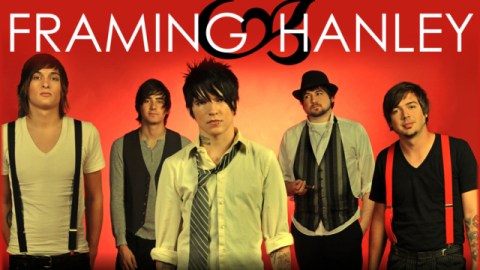Social Media Not Just for Revolutions, Also for Rock: But Are Bands Now Guilty of Coddling Their Fans?

When I saw Death Cab For Cutie five years ago in Fribourg, Switzerland, I had to leave before the show was over to catch the last train back to Geneva. So did a lot of the crowd.
Did the band notice? And if so did they know the reason was nothing to do with their performance? Would they have bothered to micro-manage the set time with the venue in order to prevent this premature exodus? And then tell the fans not to worry about getting home?
If one band’s recent action in this regard is any measure, social media is helping bands find out their fans’ concerns and communicate with them in a way to avoid confusion, missed encores, and missed trains. Seems like a win-win: happy band, homeward bound fans.
Nashville band Framing Hanley recently tweeted to fans: “Wolverhampton show: last train to Birmingham is 11:21…show will be over by 10:30 so u all can make it home.” The tweet was re-posted on the band’s main site, a Myspace page.
This was apparently in response to fans in Birmingham, U.K., complaining about no tour date there, to which the band responded: “For the UKers upset about no Birmingham date: Wolverhampton is only 17 miles away! We’ve had people in the US travel 1,000+ miles to shows.”
So now with greater ease than ever, fans can complain to bands and bands can complain to fans.
Perhaps the Framing Hanley tweets are the work of a well-organized, logistics-minded assistant. Or maybe it’s because the band – described on wikipedia as “alternative rock, post-grunge, emo” – just wants to be chummier with fans. And that’s more easily done today.
Los Angeles-based musician Brennan McNally says there is indeed “a big change to how bands communicate with their fans that’s only recently been possible.”
But where should the band’s obligations end and the venue’s begin?
“Looking into transportation schedules for 30+ cities on a tour is a lot of work for a band, especially if they’re smaller or mid level and don’t have as big of a management team to do that sorta thing,” says McNally via email. “Whereas it would be pretty easy for an individual venue to say ‘here’s the nearest stop, here’s what time it comes.'”
Still, the band might have to help make sure fans get this info.
Bands have taken the lead on this even in pre-Twitter times: In 2008, Radiohead played at Malahide Castle in Ireland, 10 miles outside of Dublin, and they both posted train schedules and arranged free shuttles that would take fans directly to the venue.
Does this level of concern take the macho out of the music? The cock out of the rock? Can you imagine Jim Morrison concerned about train schedules for concert attendees? Maybe – when he wasn’t being arrested for indecent exposure – but it wouldn’t have made into the Oliver Stone version of events.
“The real macho lies in small bands playing small clubs and rocking out till 2am,” argues McNally. “So for a bigger band with a bigger (and older) audience like Death Cab, taking into consideration their audience’s needs is just a positive way for the band to please their fans.”
Please their fans – and avoid a distracting turn of events at a show.
“It feels really weird when you’re on stage and visibly see people leaving,” says McNally, “even if you understand that it’s due to public transportation.”
–Guest post by Age of Engagement culture correspondent Patrick Riley. A recent MFA graduate of USC’s School of Cinematic Arts, Riley has worked as a journalist, a screenwriter, and a TV editor. This year he is spending time overseas studying the burgeoning Vietnamese film and entertainment industry, while keeping his eye on industry developments across the Pacific. He will be sharing his observations and field notes with AoE readers.
Other culture posts by Patrick Riley:
HBO’s Game of Thrones: Marketing, Fan Culture, and Closure to a Beloved Fantasy Series
Fan Culture: Time to Get a Life or An Overlooked Opportunity to Educate?
Mother Nature’s Sons: Beatles’ Progeny Struggle to Create Music Identity





